Search Definitions
Browse Content (p. 31)

Definition
Galileo Galilei
Galileo Galilei (1564-1642) was an Italian mathematician, physicist, astronomer, and natural philosopher. He created a superior telescope with which he made new observations of the night sky, notably that the surface of the Moon has mountains...
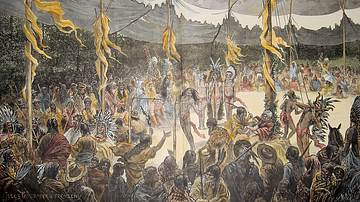
Definition
Sun Dance
The Sun Dance is a ritual ceremony observed by the Plains Indians of the regions of modern Canada and the United States to awaken the earth, renew the community, give thanks for the sun, and petition or give thanks for favors from the Great...

Definition
War of the Sixth Coalition
The War of the Sixth Coalition (1813-1814), known in Germany as the Wars of Liberation, was the penultimate conflict of the Napoleonic Wars (1803-1815). The Sixth Coalition, which included Russia, Austria, Prussia, the United Kingdom, Sweden...
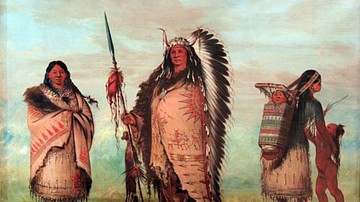
Definition
Sioux
The Sioux are a native North American nation who inhabited the Great Plains region of, roughly, modern Colorado, Montana, Nebraska, North Dakota, South Dakota, and Wyoming. They are one of the many nations referred to as Plains Indians who...

Definition
Astrolabe
The astrolabe is an astronomical instrument used from around the 6th century to measure time and position by determining the altitude of heavenly bodies like the Sun and certain stars. Measurements were taken in reference to the viewer's...
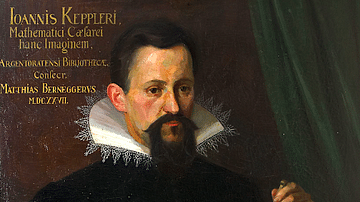
Definition
Johannes Kepler
Johannes Kepler (1571-1630) was a German astronomer and mathematician most famous for creating what was up to that point the most accurate model of planetary astronomy with his three laws of planetary motion. Kepler was the first to present...
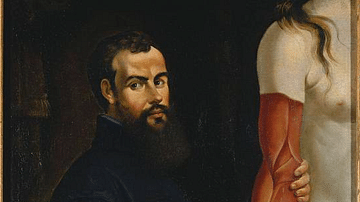
Definition
Andreas Vesalius
Andreas Vesalius (1514-1564) was the most celebrated anatomist in Europe during the 16th century and a key figure of the Scientific Revolution. Vesalius' great work was his On the Fabric of the Human Body, which contains over 250 remarkable...
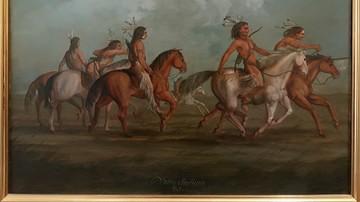
Definition
Plains Indians
The Plains Indians (also known as Native Americans of the Plains and Prairie, Indigenous Peoples of the Great Plains) are the original inhabitants of the western plains of North America, now part of the United States and Canada. They are...

Definition
French Revolutionary Wars
The French Revolutionary Wars (1792-1802) were a series of conflicts that arose from the tensions surrounding the French Revolution (1789-1799). The wars were fought between Revolutionary France and several European powers, most notably Austria...
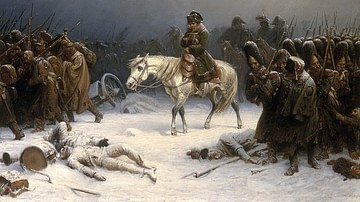
Definition
Napoleon's Invasion of Russia
Napoleon's invasion of Russia, also known as the Second Polish War or, in Russia, as the Patriotic War of 1812, was a campaign undertaken by French Emperor Napoleon I (r. 1804-1814; 1815) and his 615,000-man Grande Armée against the Russian...